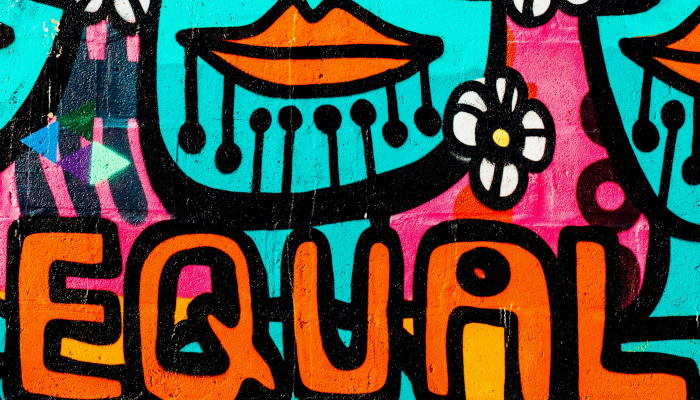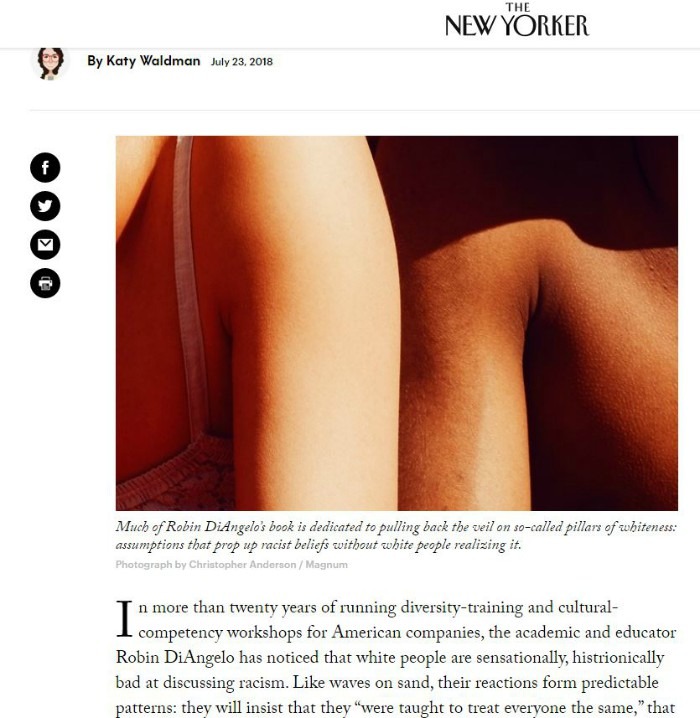Learn about the benefits of constructing a multi-year internship from a MLIS student's perspective.

Inclusive librarianship: On white fragility
In her second installment in this three-part series on inclusive librarianship, American academic librarian Isabel Espinal draws on the work of U.S. scholar Robin DiAngelo to consider the idea of white fragility—an idea she believes can help us move from being aware of our positionality to using this awareness to confront and to change fundamental social inequities.
Understanding, accepting and working with one’s own position within a social system can be/is a complicated but necessary process if change to systems is to happen. How does an idea such as white fragility support this process?
Given that you focus on white fragility in your question, I will answer it in terms of people who fall under the category of “white” and how the concept of white fragility can support the process of so-called white people accepting and working with their own position within the system dominated by whiteness. Because whiteness functions as normative and invisible, it is often very difficult for white people specifically to see whiteness. They may see themselves as white, but they are not aware of the many ways that what they perceive as normal things, as just the way things are or the way the world works are actually functions of whiteness.
That there are many other ways to do things and see the world outside of that white paradigm. And when questioned or confronted by those outside of whiteness, they may react in a defensive way. And they don’t see this as defensive. They may blame a so-called person of colour for not being sensitive to their feelings; they may claim to want diversity but somehow always react defensively towards the specific people of colour in their workplace.
I find the concept of white fragility very useful. In particular, the writings of sociologist Robin DiAngelo have been really spot on in terms of how I have seen white librarians respond to discussions of racism, whiteness and diversity in general and respond to me in particular. I read an article about DiAngelo’s work in the New Yorker this past summer (2018), and it was like she was recounting stories from my life as a librarian and as a person of colour living in a predominantly white college town. One specific point that really rang true for me was DiAngelo’s statement “that white progressives cause the most daily damage to people of colour. Not only do these people fail to see their complicity, but they take a self-serving approach to ongoing anti-racism efforts: To the degree that white progressives think we have arrived, we will put our energy into making sure that others see us as having arrived.”
Wow. That was so helpful and so true to my experience.

For example, when I was in a meeting of my library’s managers as a guest speaker explaining my idea for diversifying librarianship, one manager, instead of engaging directly with what I was saying, either by validating my viewpoint or speaking to specific potential in my proposal, started talking about how an organization she is involved with has just developed a diversity statement. This manager seemed very proud of that as she should be, but her point did nothing to further the discussion at hand, nothing to connect with me and my viewpoint. It was like she was trying to prove her own progressive credentials. I was left feeling abandoned and uncomfortable and without anyone to talk to about it or any way to name this in a way that others would understand (I was the only woman of colour there).
Later, when I read these words in the article about Robin DiAngelo, I felt so validated, less alone. To your point of positionality, it’s interesting how the New Yorker writer ends her piece: “The conspiracy of racism is hardly invisible to people of colour, many of whom, I suspect, could have written this book in their sleep.”
Photo credit: Oliver Cole on Unsplash
Isabel Espinal (MLIS, PhD) is a Research Services Librarian at the University of Massachusetts Amherst, where she is the librarian for Afro American Studies, Latin American, Caribbean & Latinx Studies, Native American & Indigenous Studies, Spanish & Portuguese, and Women, Gender, Sexuality Studies.


